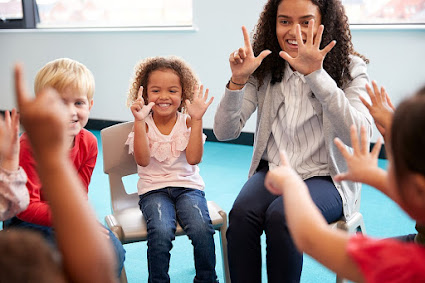Ordinary activities during the course of the day cab include simple math concepts for daycare children to pick up on. Adding and subtracting are concepts that solidify early, but even division and multiplication are possible with a little practice.
Apples and Oranges
Fruits are excellent tools for teaching math to Montessori daycare students. Different fruits can be used for sorting and shapes, and you can also use things like grapes to learn about sets, multiplication, and subtraction. Fruit is more than an aid for teaching math, it is also an excellent sensory activity, combining math skills with scents and tastes.
Lego-Style Learning
Pegged building blocks are perfect math accessories. In the guise of play-based building, children are learning to count, sort, and perform multiplication, division, and more. While lego-style blocks are not technically a Montessori activity, they have the ability to be used for a wide range of subjects from arithmetic to vocabulary. As an engaging activity, pegged blocks are fun to use and children will play with them for hours on end.
Painter's Tape Shapes
Painter's tape is available in several colors straight off the shelf and makes a perfect medium for colorful shapes or numbers of many sizes-- even super large. Pointer's tape is similar to masking tape with less powerful adhesives. Painter's tape can be easily peeled off, and will not damage paint, wallpaper, or furniture. It is a fun way for children to build familiarity with numbers, make shapes of different colors, and count the shapes they've made.
Daily Numbers
Use a paperclip on a piece of twine thrown into a plastic pail of magnetic numbers and then look for that number throughout the day. This helps young children discover how prevalent numbers are in our lives, and helps them become more engaged in learning to count or perform simple math.
Animals and Cars
Favorite toys like wooden farm animals or toy cars are often the first objects that children use to perform basic math functions like addition and subtraction. If you observe children at play with their like-sized toys, it is very common to see them sorting and counting, even if they aren't yet fully aware of what the order of the numbers may be. Counting cars develops relatively naturally and makes a great place to encourage the use of counting and math.
Daycare children are just beginning to learn about counting, so daycare math is typically very simple tasks using familiar objects. However, children learn basic math very quickly, and providing an increasingly challenging goal will help maintain interest over an extended period of time.

